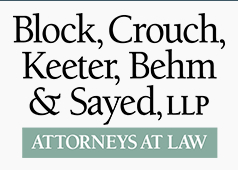Regardless of whether you are the landlord or the tenant, it is a good idea to have an attorney review a lease document before you sign it. Even when you think the lease is a “standard” form and holds no surprises, it is better to be sure what you are agreeing to before committing yourself to it. A lease is a contract, so you should be very clear about the obligations on both sides of the lease.
Generally, there are residential leases for the use of property for people to live in (houses, apartments, condos) and commercial leases for someone to use a property for a business. Though sometimes a business owner also owns the property where the business is located, often a business owner will lease premises to use for business purposes. In that situation, it is crucial to have an attorney well-versed in commercial leases prepare or review the lease so that you know exactly what to expect and what is expected of you.
Commercial leases are often several years in duration and can be for a much higher annual rent, so the lease terms are even more important than with a residential lease. A good attorney will tell you which terms are fair, which are troublesome or negotiable, and if there are any red flags. Also, attorneys have experience on both sides of commercial leases, which you may not, so they know what terms to look for and when something may become a problem. For example, if you run a bakery in a shopping center, you want to be sure that the landlord won’t rent another space in the shopping center to a bakery, coffee shop or other similar setup. The attorney will know the language to include to make sure that happens. An attorney can also help to negotiate terms and may think of topics that the business owner doesn’t, because the attorney is looking at the big picture and is not emotionally involved with the transaction.
With residential leases, which are usually shorter in duration, the terms are often more flexible. You may be offered a “standard” lease by the landlord (especially if you are renting in an apartment complex or from a landlord with multiple units), but there really is no standard. An experienced attorney can review the lease and quickly tell you whether it complies with the statutes covering residential rental agreements or needs to be rewritten. The attorney can also help you navigate terms that may not be familiar to you, negotiate a deposit amount, or explain provisions which might not be clear. For example, leases often include an automatic renewal provision so that if notice of termination is not given before the lease period expires, the lease will renew. This can catch people by surprise (often students and their parents who co-signed a lease on their behalf) when it comes time to move out. People often find themselves owing an additional month or two because they simply didn’t understand that they needed to give enough notice before terminating the lease and moving out – an expensive lesson.
Because a lease is a contract, the document itself will likely be enforceable as written regardless of any “side” agreements that might have been made verbally. All agreements should be written into the lease to avoid any confusion and to make sure that both sides understand their obligations. If the lease later needs to be enforced or challenged in court, the judge will want to know what the lease states, rather than anything that was said during negotiations or after the lease was signed.
Though it may seem like an unnecessary step, including an attorney in your lease negotiations, or at minimum before signing, may save you time and money or result in a stronger lease that will be easier to enforce. For commercial leases especially, a knowledgeable attorney can make the difference between a lease that is flimsy and one that is ironclad.
